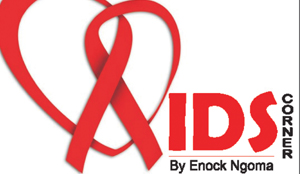 MELBOURNE, Australia will this July be a hive of activity as it will host the 20th International AIDS Conference, a premier gathering for those working in the field of HIV, as well as policy makers, people living with HIV and others committed to ending the epidemic.
MELBOURNE, Australia will this July be a hive of activity as it will host the 20th International AIDS Conference, a premier gathering for those working in the field of HIV, as well as policy makers, people living with HIV and others committed to ending the epidemic.
The biennial conference takes place from July 20 to July 25, 2014 at which stakeholders will work together to strengthen efforts across all regions and around the world, building the momentum of recent scientific advances and the momentum from AIDS 2012.
According to Francoise Barre-Sinoussi who is the International Chair and also president of the International AIDS Society (IAS) and Sharon Lewin, the AIDS 2014 co-chair, AIDS 2014 is expected to convene 14, 000 delegates from nearly 200 countries, including 1, 200 journalists.
The IAS, the world’s leading independent association of HIV professionals, with more than 16, 000 members in 194 countries, is organising AIDS 2014 in collaboration with international and local partners.
The two professors say the importance of holding the conference in Australia is among other reasons, that the Australian health policy response to HIV has been categorised as emerging from the grassroots rather than top-down, with a high degree of partnership between scientists, government and community.
AIDS 2014 will be an important opportunity to share the benefits of such partnerships with other countries.
“Hosting AIDS 2014 in Melbourne will also make it possible for those from across the region (Asia) to attend the conference and share their successes and challenges on a global level.
The larger Asia Pacific region has the largest geographical area and population in the world, dramatically varying levels of wealth, and a complex mix of structural and behavioural determinants of HIV risk, giving the experts from the region unique perspectives on the epidemic that will be of great value to their colleagues from around the world.
“The conference will accord a tremendous opportunity for researchers, to share the latest scientific advances in the field, learn from one another’s expertise, and develop strategies for advancing all facets of our collective efforts to treat and prevent HIV,” they said in the foreword of the AIDS 2014 publication.
One of the readers has been asking me, what are the merits and de-merits of male circumcision? Well I googled and found this answer, though not comprehensive but I am sure it covers a number of issues on the subject:
There are several potential advantages and disadvantages associated with circumcising boys shortly after they are born.
For example, Circumcision reduces the risk of developing a urinary tract infection (UTI), such as a bladder infection.
Circumcision reduces the risk of getting some types of sexually transmitted infections such as HIV.
Circumcision reduces the risk of developing cancer of the penis.
Reduced sensitivity – an uncircumcised penis is more sensitive than a circumcised penis, meaning that circumcised men may experience less pleasure during sex.
Potential complications of circumcision – these include excessive bleeding and post-operative infection, and outweigh any potential benefits.
Critics have also argued that routinely circumcising baby boys on medical grounds violates the principle of consent to treatment.
They say that circumcision should only be performed when a boy is old enough to make an informed decision about whether he wishes to be circumcised or not.
Last week, women all over the world celebrated the International Women’s Day. It is my sincere hope that as messages about the girl child, abuse of women, segregation in opportunities, etc, the issues of HIV and AIDS were also included.
HIV and AIDS in this part of the world is believed to be more in our women folk than in men and it is for this reason that it is important that at every fora, sensitisation about HIV and AIDS is vital.
Until next week, I pen off for now but you can contact me on any issues related to HIV and AIDS or any other health issue on knoxngoma@gmail.com orSMS/call +260955883143.






